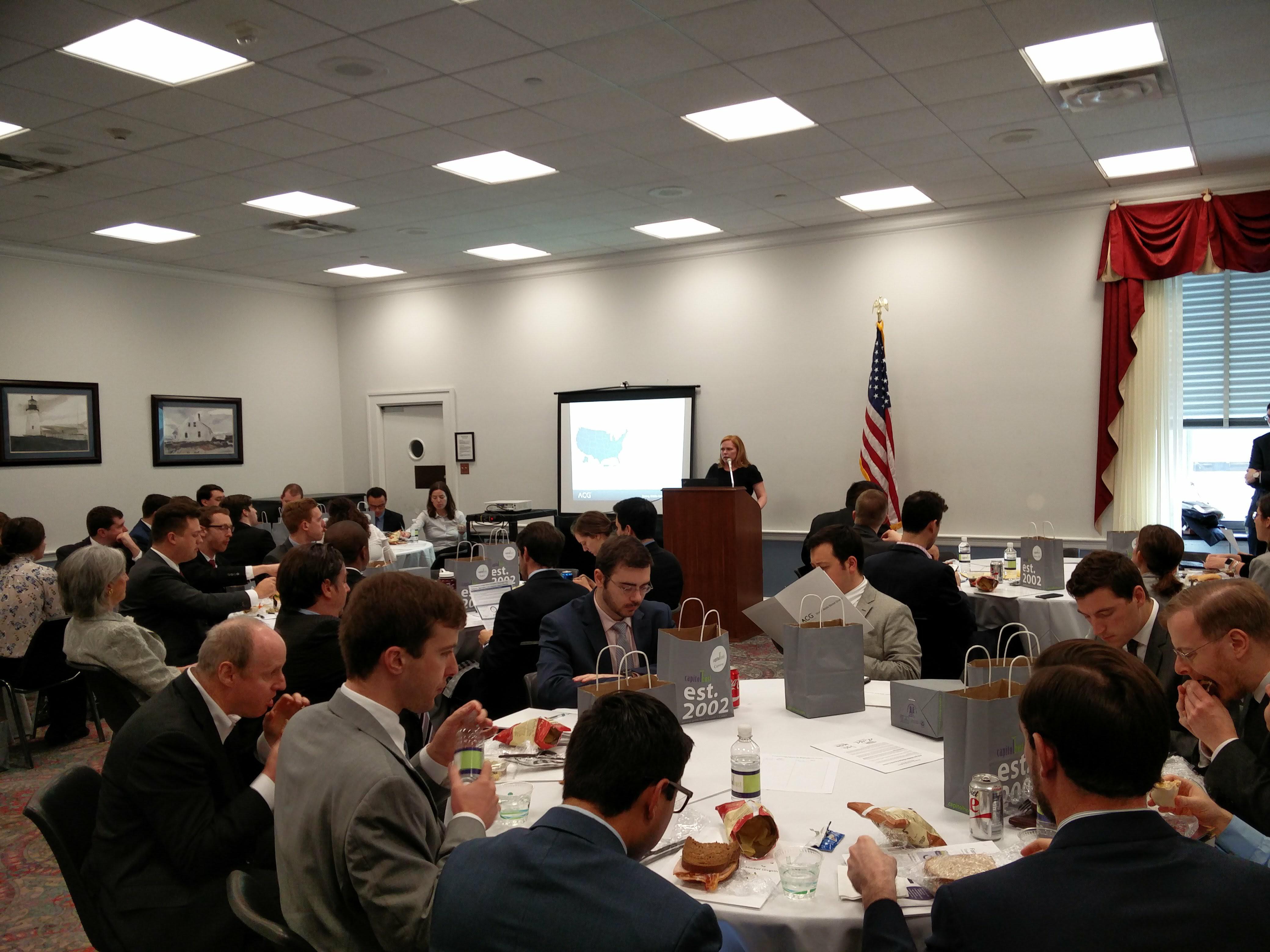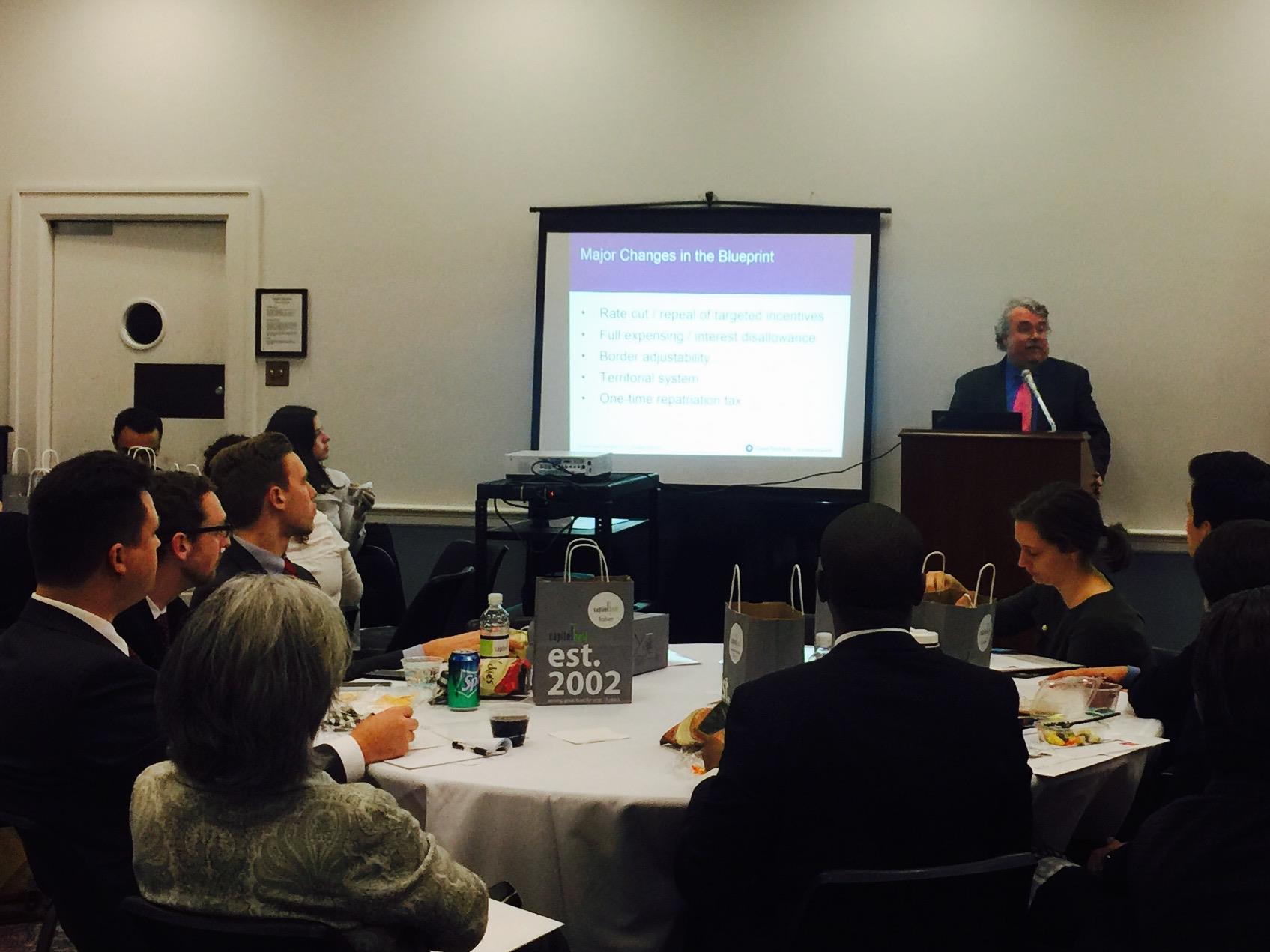Middle Market Caucus Event Focuses on Tax Issues
Deductibility of interest on corporate debt is a top concern for middle-market dealmakers, who met with lawmakers to dive into tax reform and its effects on economic growth.

Maintaining the deductibility of interest on corporate debt remains a top concern for middle-market dealmakers, who gathered in Washington with lawmakers last week to dive into the topic of tax reform and its effects on economic growth.
“Eliminating interest deductibility would create artificial winners and losers,” said Steven Bortnick, a partner in the tax practice group of Pepper Hamilton LLP. “It’s really not feasible for a middle-market company to go get equity financing in the same way they would get debt financing.”
Bortnick was one of five speakers at a luncheon sponsored by the recently reauthorized Middle Market Growth Caucus, a bipartisan coalition that celebrates the contributions of middle-market businesses to the national economy. Mel Schwarz, partner and director of Tax Legislative Affairs in Grant Thornton’s Washington national tax office, was the other keynote speaker.
The caucus is co-chaired by Ohio Rep. Steve Stivers, Colorado Rep. Jared Polis, New Jersey Rep. Tom MacArthur and Arizona Rep. Kyrsten Sinema.
The event, planned by the offices of the caucus co-chairs in collaboration with the Association for Corporate Growth and The Ohio State University’s National Center for the Middle Market, was designed to inform, discuss and collaborate a pro-growth agenda for the middle-market ecosystem.
Other tax issues relevant to middle-market businesses were discussed, including:
- Speaker of the House Paul Ryan’s “A Better Way” blueprint for tax reform;
- Potential rate cuts/repeal of targeted incentives;
- Border adjustability tax (which would eliminate the ability for companies to deduct the cost of imports, while eliminating the tax on income-attributable exports);
- The implications of moving toward a territorial tax system in which all income earned within the borders of the United States is taxed, regardless of whether a business is headquartered in another country; and
- A one-time repatriation tax for returning foreign earnings back to the United States.


Speakers said the feasibility of non-traditional portions of the plan, such as border adjustability and interest deductibility, are generating significant debate, particularly in light of the failure of Congress to repeal the Affordable Care Act with new legislation from President Donald Trump. Policy makers expect comprehensive tax reform legislation to likely be pushed into the summer or later this year.
More information on the issue of interest deductibility is available at http://www.buildcoalition.org
For more information on the House Middle Market Growth Caucus, and ACG’s public policy efforts, please contact Christine Melendes at cmelendes@acg.org


